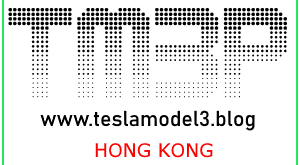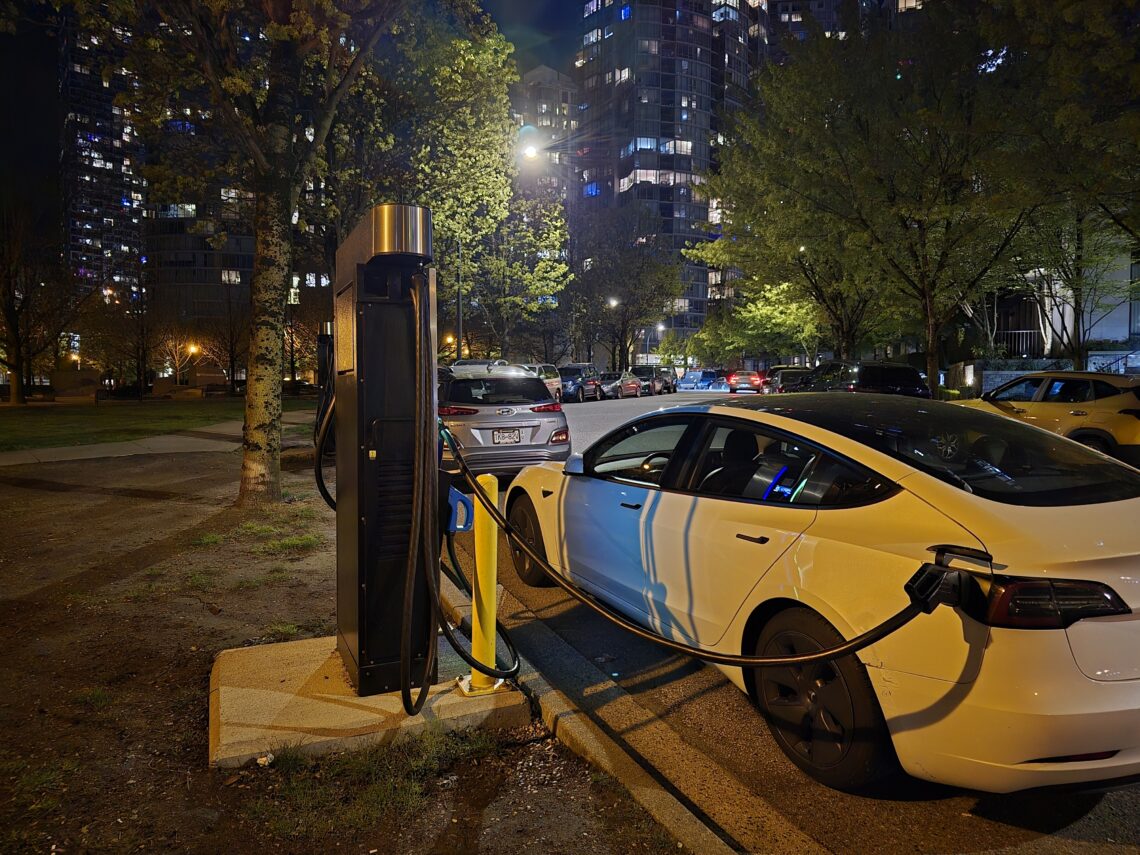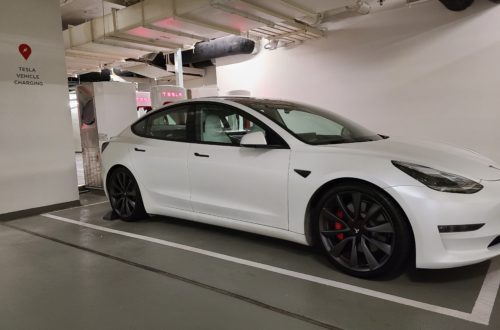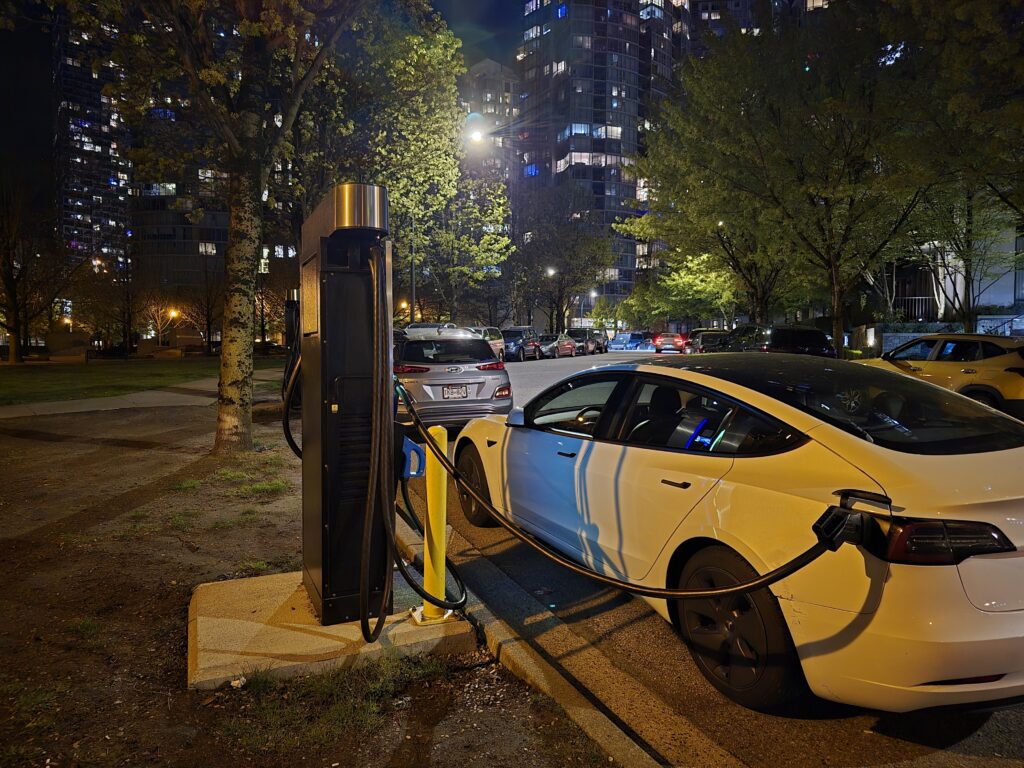
I recently had an opportunity to drive a Tesla Model 3 Long Range for 10 days when I visited family and friend in Vancouver, Canada. I’ve “rented” the Tesla from carsharing company called “Turo“. They have many Tesla listed in the Vancouver Metro area and I’ve found a great host. My experience on the Turo platform was perfect. I have no issues whatsoever. My tip is to rent from a person that actually owns the car rather than a company that owns a fleet. It might give you a more personalized experience.
How big is Vancouver compared to Hong Kong?
Vancouver in some ways is very similar to Hong Kong. Not because of its huge Asian population but because of its size. I grew up in Vancouver and learned how to drive here when I was only 16. Yes, you could get a driver’s licence in Canada when you are only 16 years old. And I did. If you know Vancouver, back then, in the 2000s, the Sky Train network was nothing like today so taking the bus and driving is pretty much your only option when commuting in Vancouver.

Driving in Hong Kong, we never really have to worry about range anxiety especially when you are driving a Tesla because of the number of supercharging stations in such a small city. I believe Hong Kong probably has the most superchargers within such a small area.
Vancouver is a bit different but compared to many North American city, it is not considered to be a huge city. When we talk about Vancouver, we are actually referring to an area known as the “Lower Mainland” or “Metro Vancouver”. There are 21 municipalities or “cities” within Metro Vancouver. In the map above, I’ve highlighted the main “cities” within Metro Vancouver where the majority of the “Vancouver” population lives. If someone is from Vancouver, they will be living in one of these municipalities.
In the map above, I’ve roughly shown the distance from Vancouver International Airport to these cities/municipalities in Lower Mainland. You can see that from the Airport to the center of Maple Ridge at the eastern edge of Metro Vancouver, is only 60km. Airport to the downtown area is only 15km.
Comparatively speaking, Kowloon to Hong Kong Airport is around 35km. You can have an idea about the similar size between Hong Kong and Vancouver in the map overlay below as well.
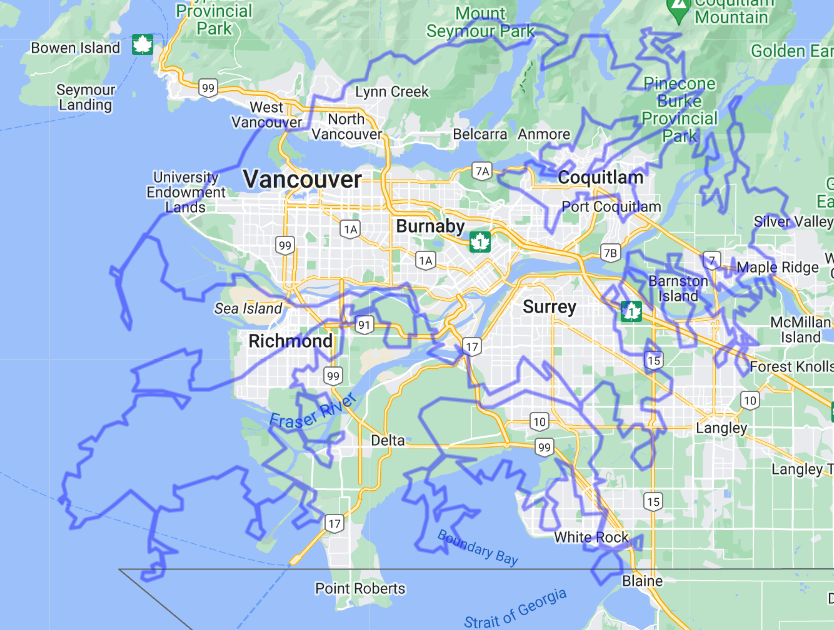
In the map above, I’ve overlaid Hong Kong over the Vancouver Lower Mainland. Of course, the New Territories and Lantau Island in Hong Kong is huge and the population only lives in certain “towns” in New Territories and we know that the majority of land is forest and national parks in Hong Kong.
The majority of Vancouver’s population also only center’s around the few major “cities” like Vancouver, Richmond, Burnaby, Surrey, Langley and Coquitlam but the population of the whole Lower Mainland does not even reach 3 million compared with Hong Kong with more than 7 million. In 2022, there are more than 100,000 EVs registered in the province of British Columbia.
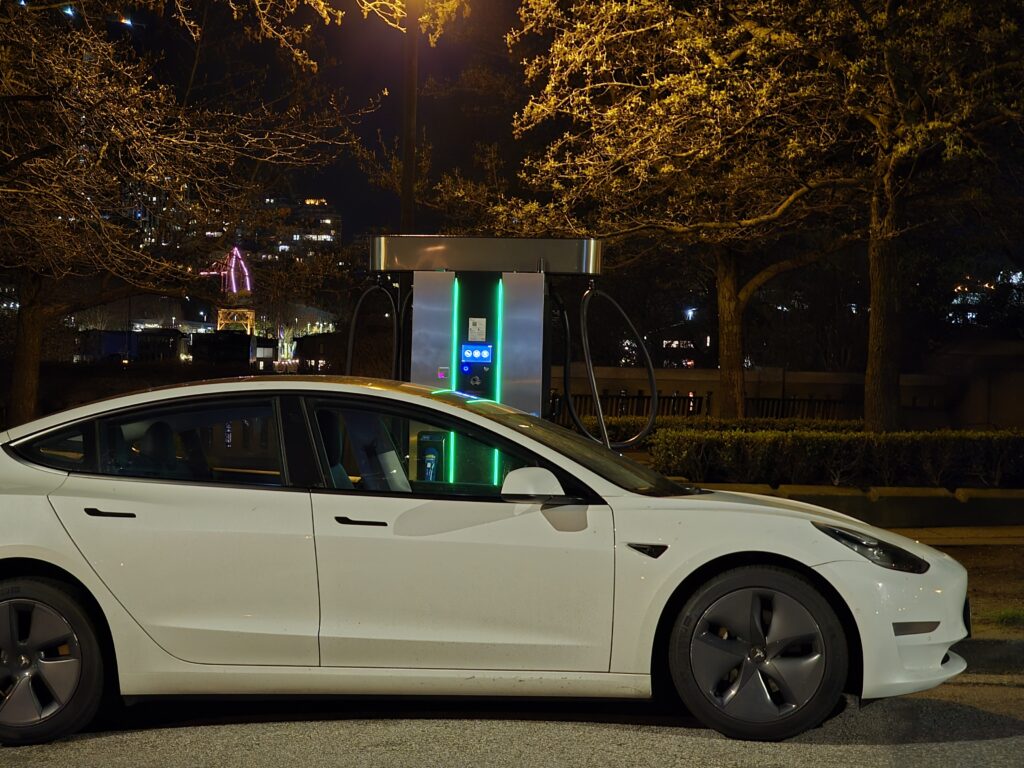
Range Anxiety and Where to Charge?
The size of the city has everything to do with driving an electric vehicle because range will always be an issue with EVs. Even driving in Metro Vancouver, I’ve never felt having range anxiety at all. As discussed above, Vancouver is really very similar in size to Hong Kong. I find there are many options to charge a Tesla although not with it’s caveat.
The Tesla North American Charging Standard
All Tesla vehicles in North America uses the “North American Charging Standard” plug type. I found none of the “public” charging stations uses this plug type. All the charging stations uses Type1 plug for AC charging and either CCS Combo1 or Chademo for DC Charging.
I found this a bit of an issue because although there are many Tesla Supercharging stations around Vancouver Metro area, it is not close and convenient to where I live in Vancouver. However, there are a number of “public” DC charging stations near where I live but they only uses CCS Combo1.
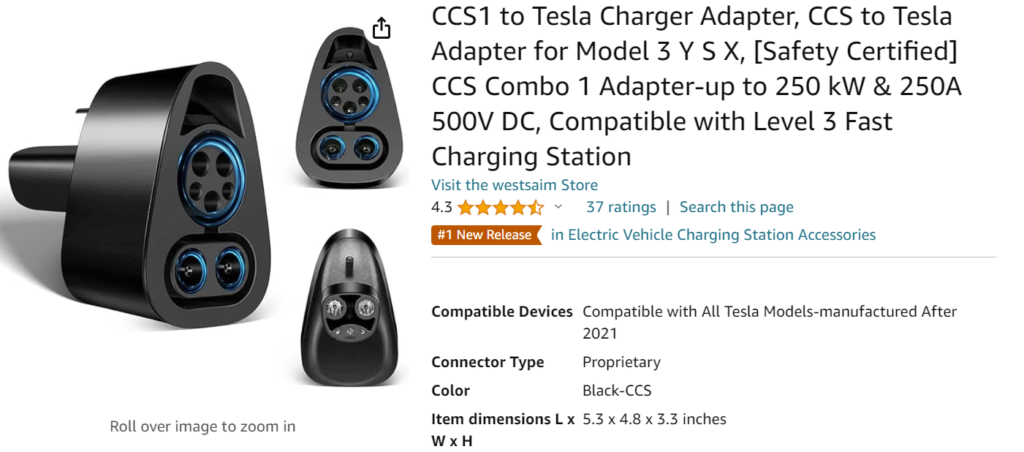
I did some research and found there are these CCS1 to Tesla “North America Charging Standard” plug adaptors on Amazon. I bought one and it worked wonderfully. However, I could only reach around 50kW in most of the CCS1 Chargers even when they are rated at 100kW+. I am not sure if it is an issue with the adaptor or these DC chargers or the Tesla itself with CCS1. Tesla also have an official CCS1 adaptor.
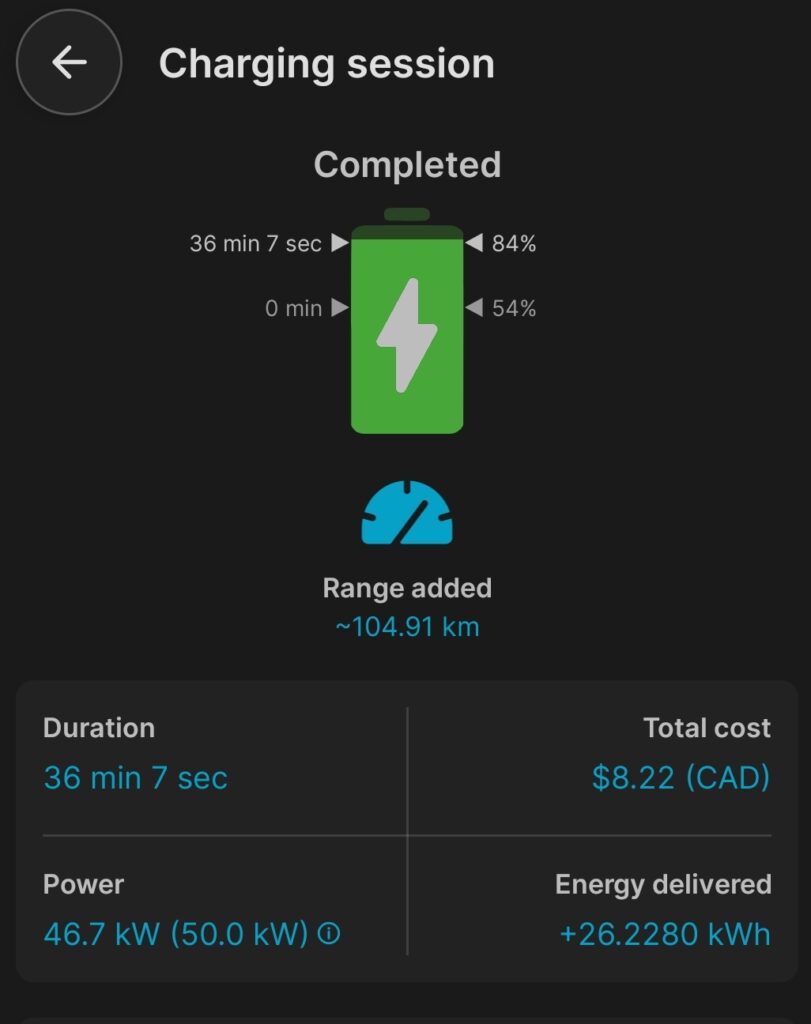
CCS1 charging Stations vs Tesla Superchargers
Although having this adaptor opened up a lot more options for me to charge on the road with a Tesla, the charging rate seems to be more expensive than Tesla’s superchargers. That is why I’ve never seen a Tesla charging at one of these CCS1 charging stations.
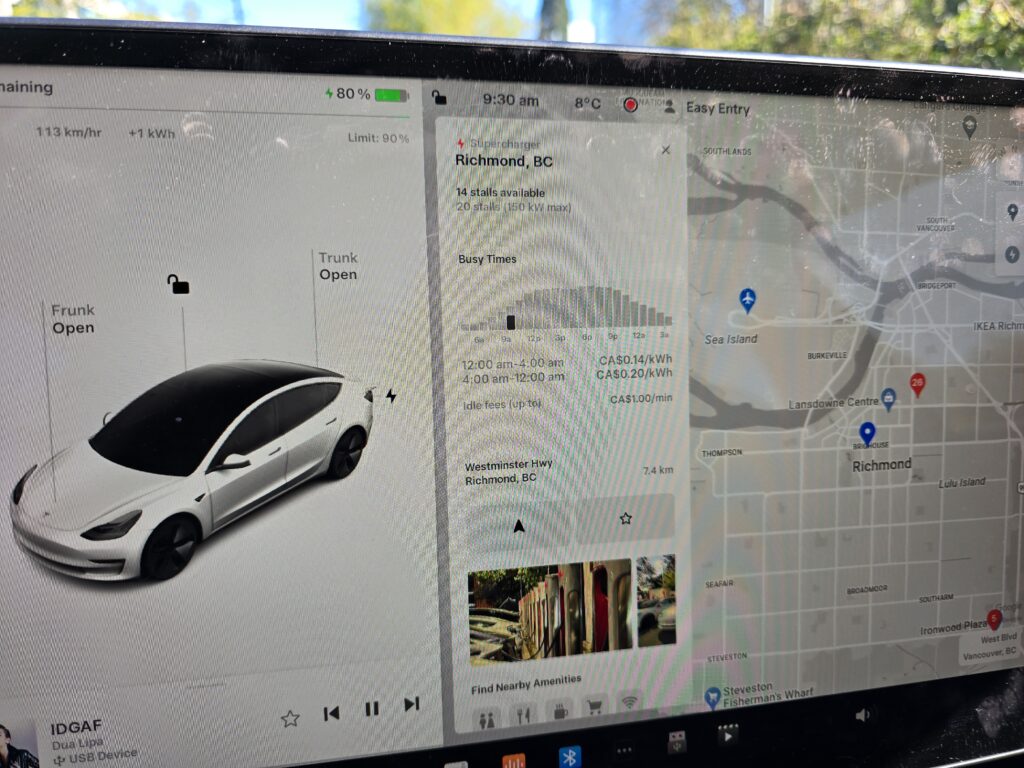
The price difference per kWh is quite significant between the “public” CCS charging stations and the Tesla Superchargers where the Tesla Superchargers costs 40% less even at peak hours.
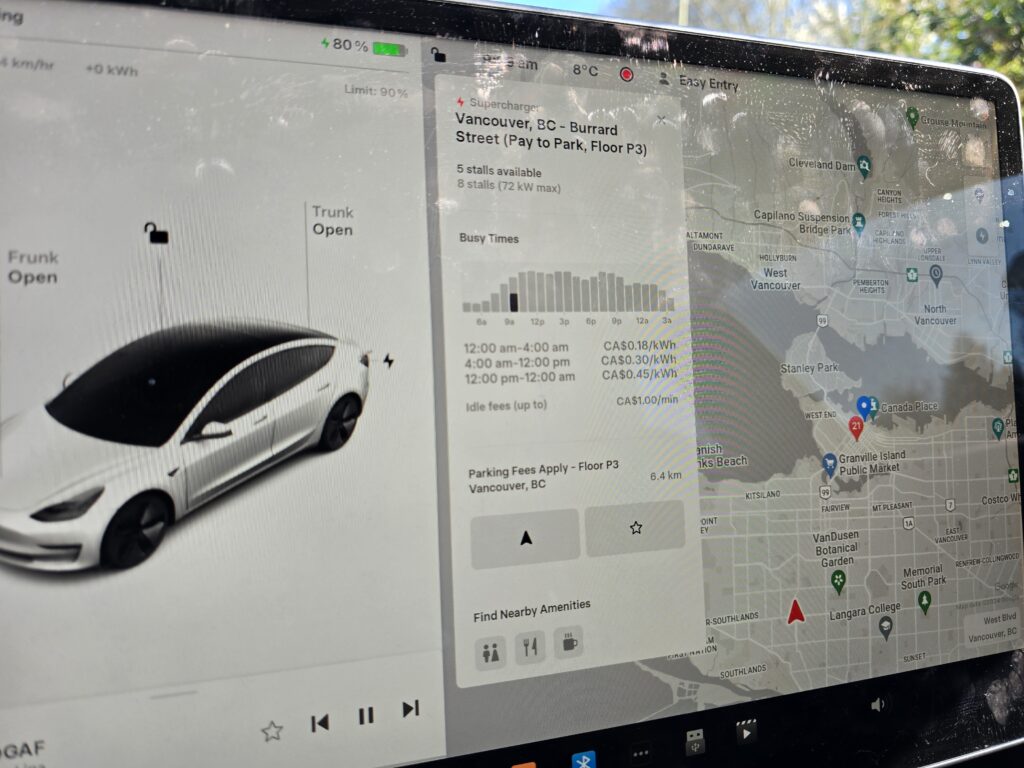
I do find Supercharging stations pricing a bit different throughout the Vancouver Metro Area. The 8 stalls in Vancouver Downtown area have 1 more pricing tier between 12:00pm to 12:00am which costs CAD$0.45/kWH, and more than the CCS1 “public” chargers.
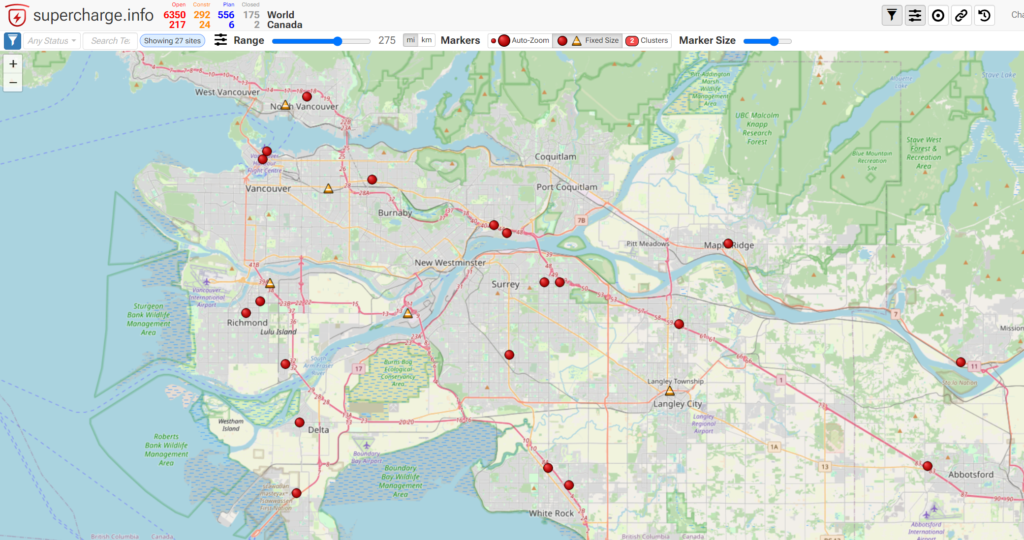
As of April 2024, there are around 20 Supercharging stations in the Vancouver Metro area with most of these stations having more than 10 Superchargers in them. The 2 in Richmond seems to be the largest with 40 and 20 Superchargers respectively. Unfortunately, I did not visit any of them as they are a bit far from where I am staying in Vancouver. Although, a Supercharger is a supercharger and they are the same anywhere in the world. Also, the fee will be charged to the Tesla host, who owns the car, and I don’t want the hassle to sort of how to pay him back etc. But he did explain that any Supercharging costs will be at cost and I need to pay him back, obviously.
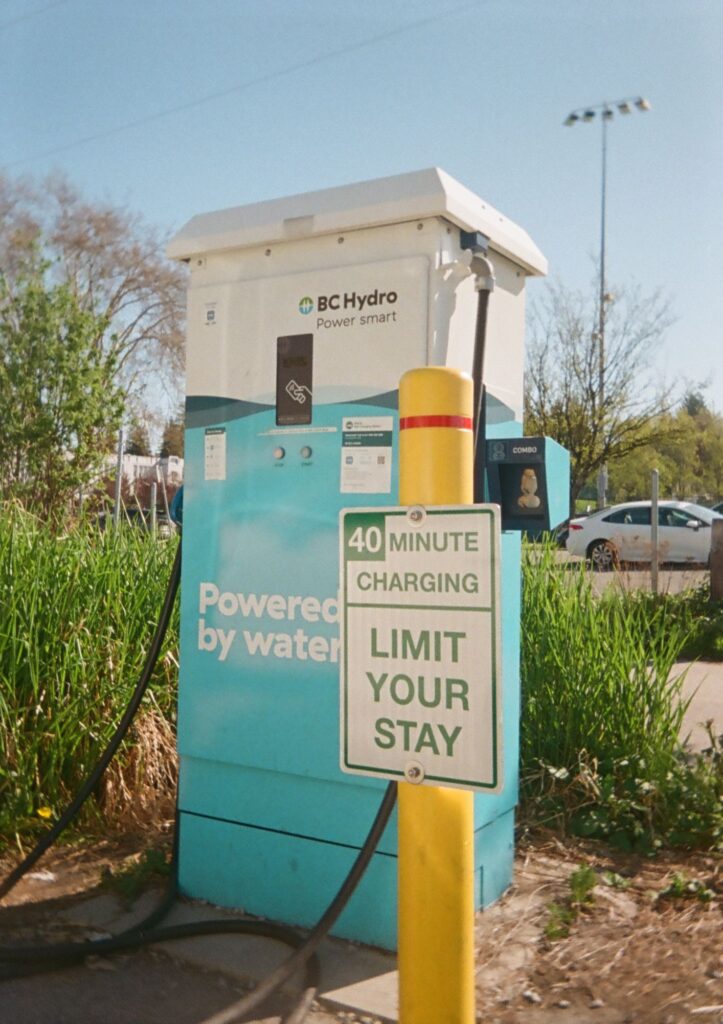
What Apps and charging operators should I use when driving a Tesla in Vancouver, Canada?
Other than the Tesla Superchargers, there are a few different “Public” Charging Stations operators around the Metro Vancouver area that I saw. There are Shell, Chevron “On The Run”, BC Hydro, FLO, and ChargePoint. Most of them have an app which can be used to operate and pay for charging. I do find it a bit confusing as there are just too many different operators. I found the FLO app to be easiest to use and you can use it to operate ChargePoint, Shell and BC Hydro chargers and pay for it on its app as well.
You can also see the status of the chargers within the Apps or you could also use PlugShare app but I found the FLO app to be more accurate in showing the status of all the partner networks.
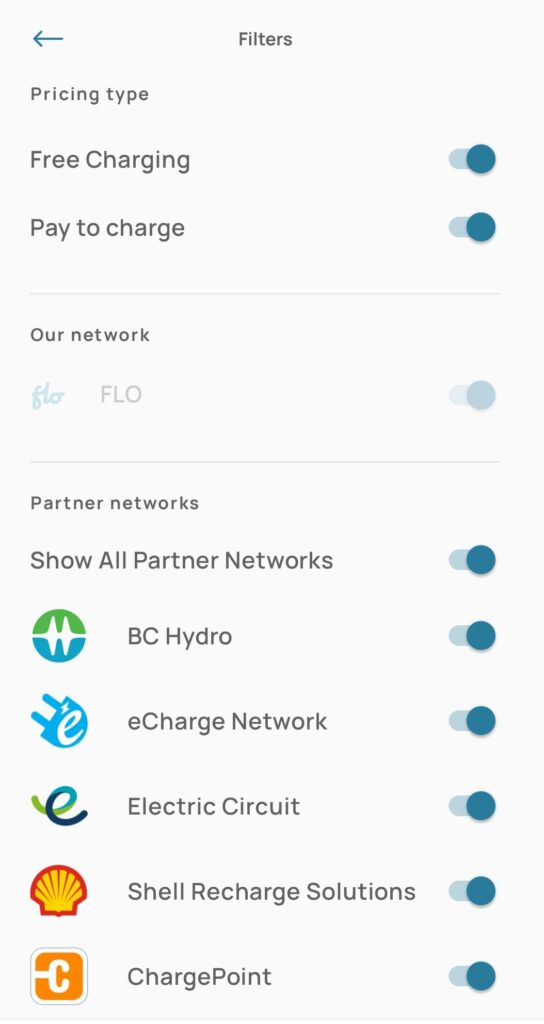
There is no difference in pricing when using the FLO app in charging using a different operator. You can also apply for a FLO charge card on the app. The card is just a RFID card which you can tap on the charger to charge. You top up the card using the app. This is also very convenient if the app or internet connection is not working at the charging location.
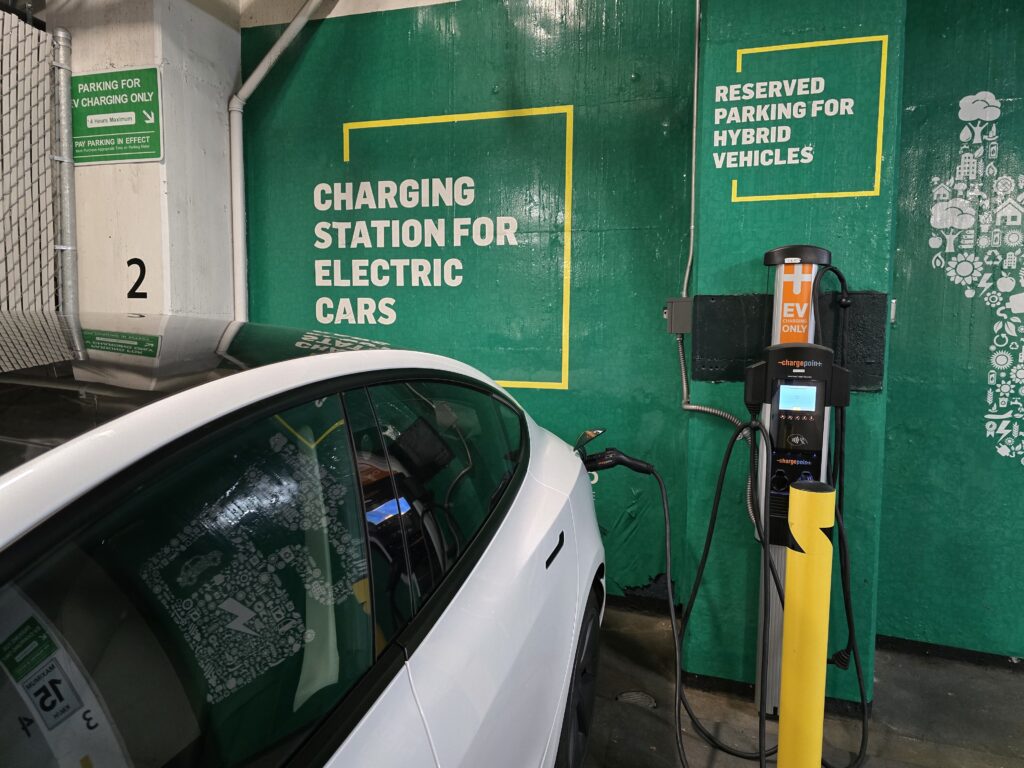
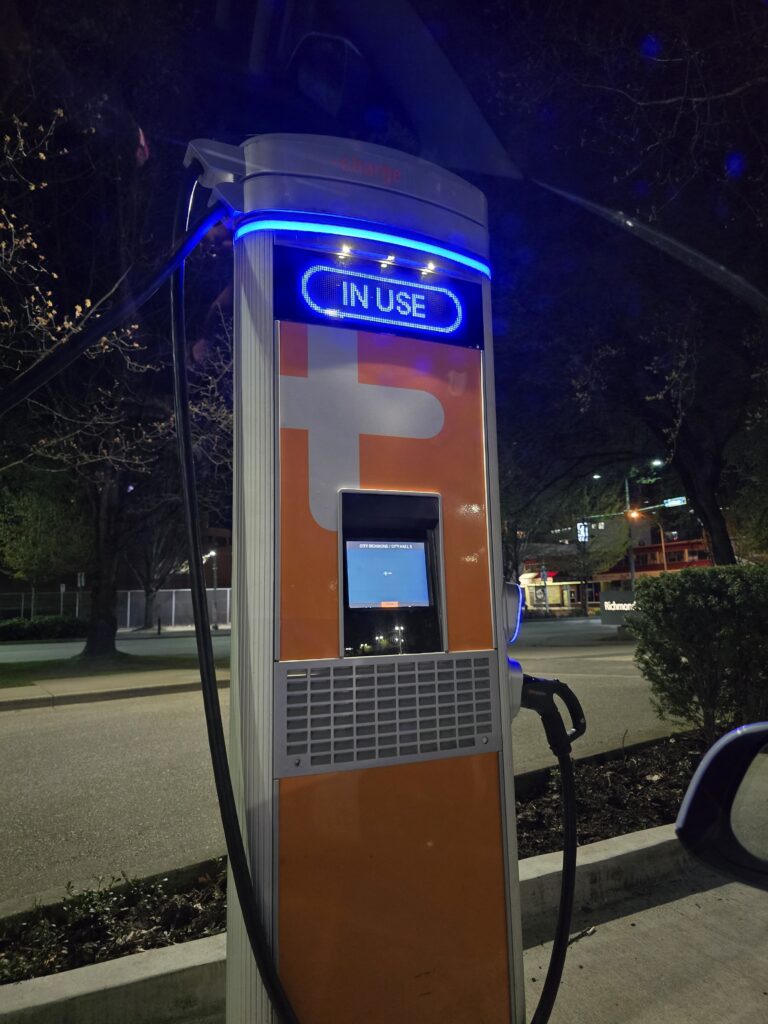
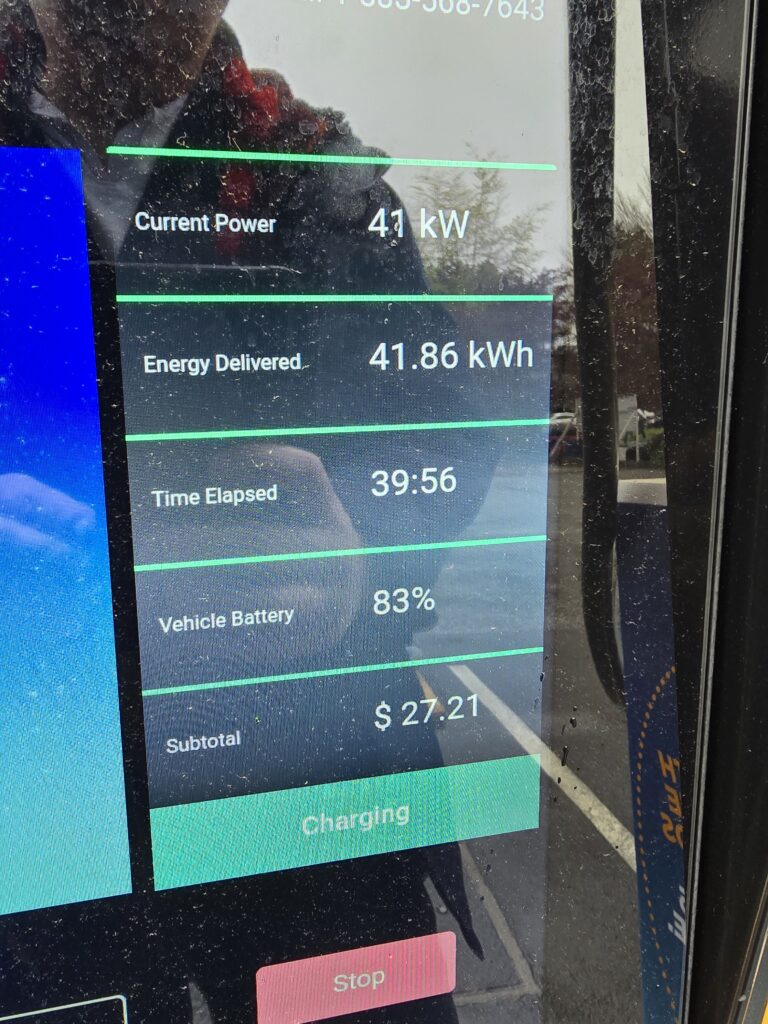
The most expensive “public” DC charging station was the ones at the Chevron Gas Station. It was at CAD$0.65/kWH !
How much does it costs to charge a Tesla in Vancouver, Canada?
Gasoline in Vancouver is the most expensive in the whole of Canada. In April, 2024, Gasoline in Vancouver is around CAD$2.00 / litre (HKD$11.43). Comparatively to Hong Kong, it is still significant cheaper at HKD$23.95 / litre (CAD$4.19) in Hong Kong. Although, arguably, driving in Metro Vancouver is almost a necessity vs a luxury in Hong Kong.
So as a comparison, a Honda Civic has a tank capacity of 47 litres so filling up a full tank would costs CAD$94. In a perfect world, it would give you around a range of 700km. Therefore, it would costs CAD$0.13/km.
A Tesla Model 3 Long Range has a batter capacity of 75 kWh. Let’s use a Supercharger station at CAD$0.20 / kWh so a full charge would costs CAD$15.00. The Model 3 Long Range is rated with a range at around 570km. Therefore, it would costs CAD$0.03/km. This is around a difference of 125%!
Just in terms of Gasoline costs, going electric has a huge saving even if you are just doing supercharging in Vancouver. I do not know how much it would costs if you have a Level 2 charger at home. BC Hydro does have different rates between night and day and different taxes and levy as well. I presume it would be even cheaper if you have a charger in your garage at home.
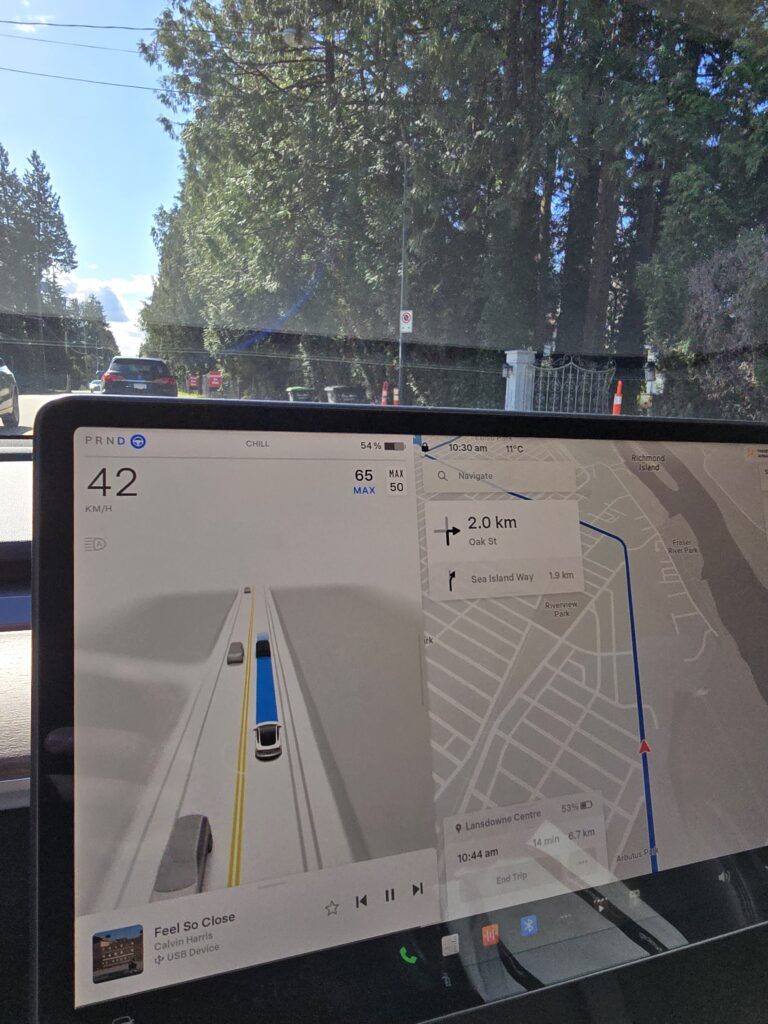
Tesla Auto Pilot and what we are missing in Hong Kong
If you have to ask me, the Tesla Auto Pilot in Hong Kong is really nothing more than a fancy cruise control that is available in many cars not only in a Tesla. However, this is the first time that I really tried and experience what a true full self driving in like with the Tesla Auto Pilot in Vancouver.
Unfortunately, I forgot to check what version of Auto Pilot this Model 3 is using and quite frankly, I do not have any idea of the difference if I’ve checked. All I knew is that Auto Pilot is available in ALL roads in Vancouver. At least , the places I’ve went to. If you entered in your destination, it would really drive itself to that destination even in neighbourhood roads.
Although, I did not extensively test it as this is not my car and I am a bit nervous when the Tesla is driving itself in a very narrow small road. It works. It is showing me that it is working but I just cannot let it go hands free all the way even though it could.
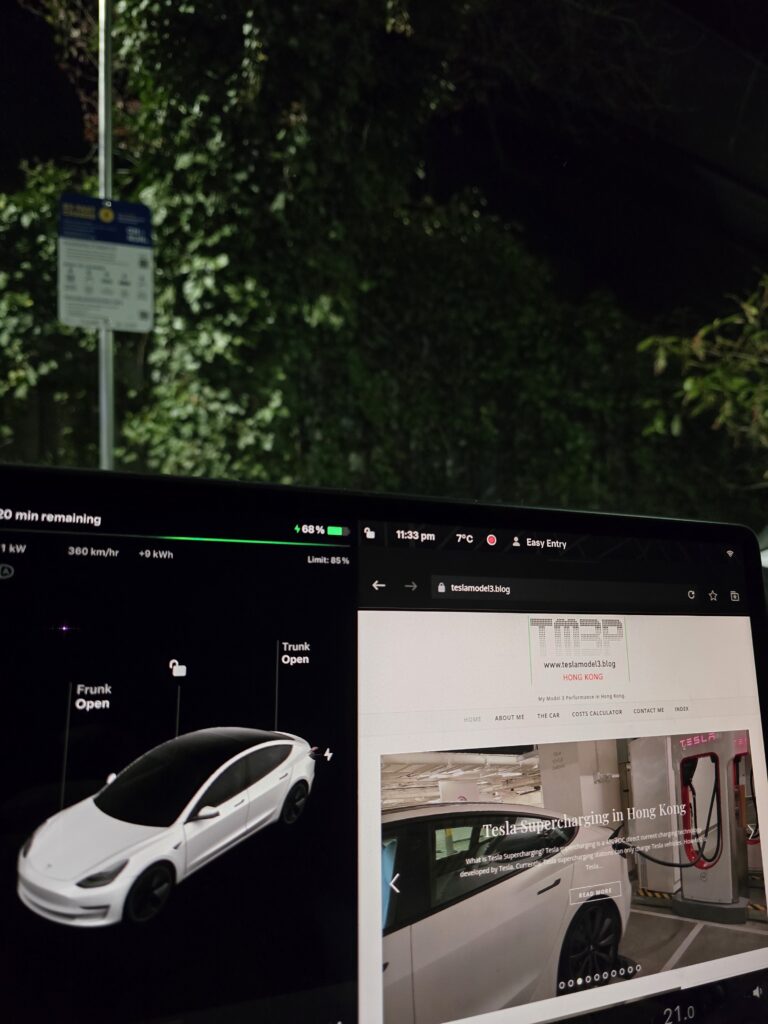
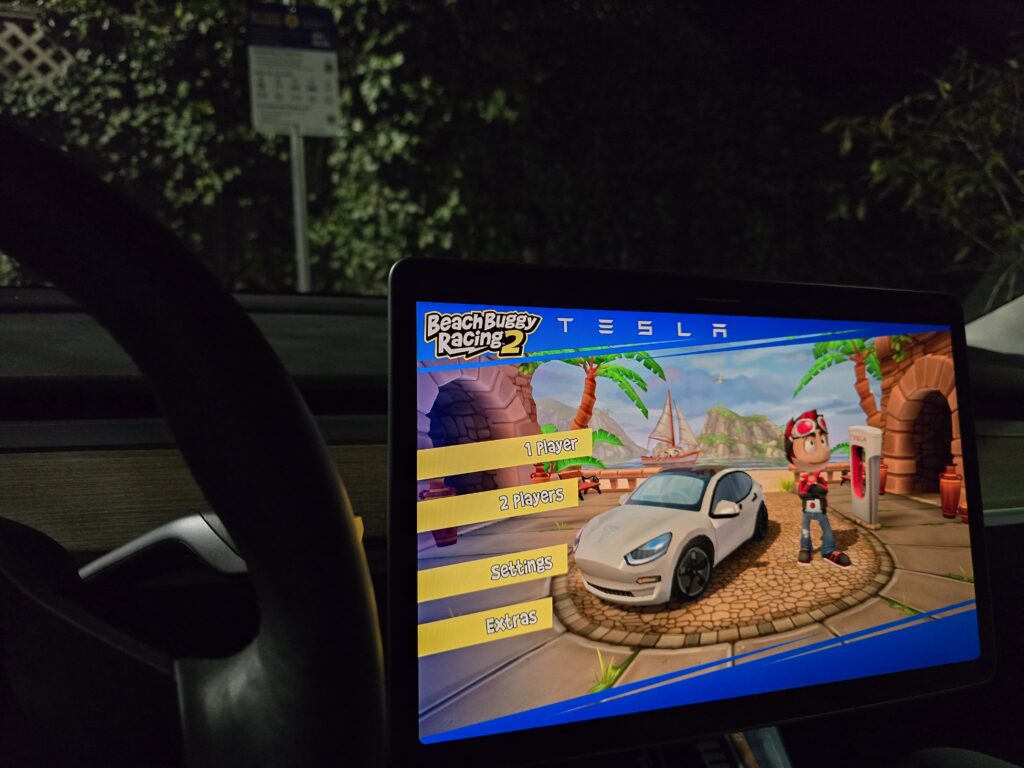
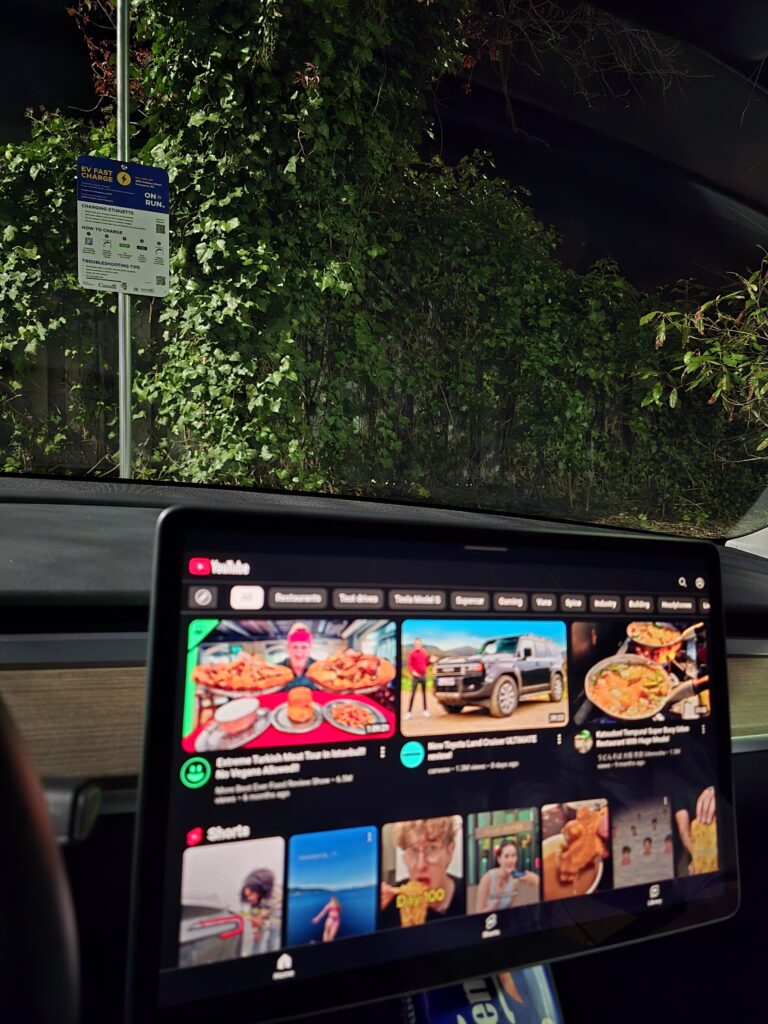
It might seem a norm for Tesla owners in North America or Europe but for us in Hong Kong, we do not get any of these built in apps such as internet browser and YouTube/Netflix. The vehicle licensing authorities does not approve these apps on the road even if it is only available in Parked.
The more I drive the Tesla in Vancouver, the more I think we are missing so much of the “real” car and its true potential in Hong Kong. Of course, true full auto driving could never happen in Hong Kong with its roads and traffic/pedestrian culture and setup being completely different than North America. However, there is just so much more the car could do than the one/software that we are driving in Hong Kong.
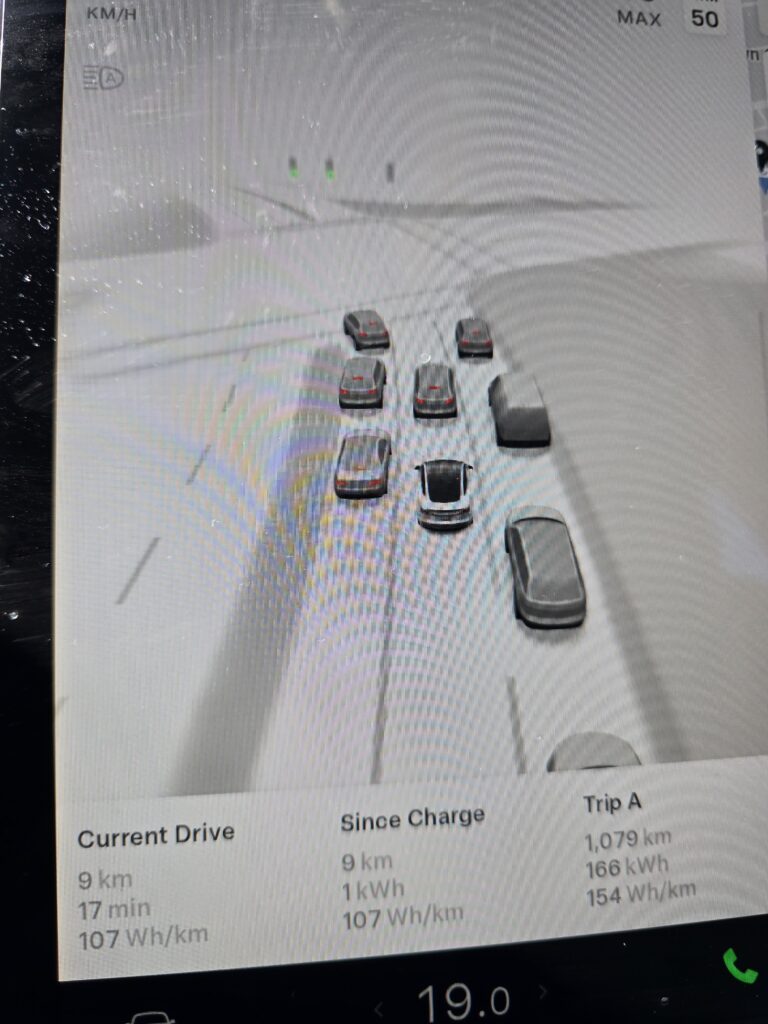
I will definitely drive a Tesla if I live in Vancouver
I am getting a much better Wh/km in Vancouver than I am driving in Hong Kong. Of course, my Performance model with 20 inches wheels and air conditioning on all the time does not help as well. I am getting around 200 Wh/km in Hong Kong with my Performance model compared to 154 Wh/km in Vancouver.
If I live in Vancouver, I would get a Long Range version without question. I would get a Tesla for sure as it is still my favourite EV even with all the different options available in the market today. The UI for the software is still the best in my opinion. It is easy to use and intuitive in many ways compared to other manufactures. The range estimate and calculations is as accurate as it could get.
Why some Vancouverites are reluctant to drive an EV?
I had a few conversations with different people in Vancouver about the EV market in Vancouver and many are not as enthusiastic as I am. It seems like many still have range anxiety and how the cold weather might affect an EV range. Although, as I’ve pointed out, range is really not an issue if you only drive in Metro Vancouver. It should not even be an issues if you drive down to Seattle once in a blue moon. Also, how many days in Vancouver do we really experience real nail biting cold temperatures compared to say Toronto?
Then of course there is the environmental factor which is not only a question for potential EV owners in Canada but for any EV owners around the world. Really how environmental friendly is driving an EV compared to an internal combustion engine car? How environmental friendly is making the battery with all the raw materials needed? What is the life expectancies of the battery and how long will the battery last before we need to get a new battery replacement/car? How will we dispose of these batteries?
These questions seems to be more difficult for the North American market than compared to Hong Kong as I argue most EV owners in Hong Kong is only thinking about how much they will save in gasoline rather than the environmental issue with the battery/car. There are cultural differences here and those who could afford driving in Hong Kong is still a luxury for many. Whereas, the costs of an EV car is still considered more expensive than buying a normal internal combustion engine car in Canada and it is a huge deciding factor as well for the EV market in Canada.
